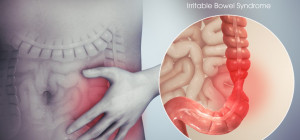High protein diets have never been more popular. What was something left to bodybuilders and athletes is now becoming more widespread as the health benefits become clearer. You don’t need to be interested in lifting weights and building muscle to enjoy the benefits of a high protein diet – it improves your life in many ways.
This makes sense considering the important role protein plays in the body. Appropriately known as the building block of the body, protein is found in all cells and helps build and repair body tissue, while also being essential for the growth of various parts of the body such as bones, muscle, skin, and various hormones and chemicals.
Let’s take a closer look at eight proven benefits of high protein diet to improve your life!
Building Muscle Mass and Strength
When people think about high protein diets, they most likely think of bodybuilders and gym fanatics, who have long been touting the benefits of a high protein diet to help build mass and strength.
There are many studies that clearly show how a high protein diet helps to increase muscle mass and strength. This is because protein is made from amino acids that are responsible for the growth of muscles, meaning the more protein you eat the more muscle mass and strength you can develop, while it also aids in quicker muscle recovery. Gym Equipment GB have shown in their “10 reasons to eat more protein” infographic how protein increases muscle mass and strength.
Of course, consuming a high protein diet on its own will not result in muscle growth – you need to incorporate appropriate weight training along with a high protein diet.
Appetite Control
A high protein diet is shown to help reduce various hunger cravings, meaning eating fewer calories are consumed throughout the day.
For example, one study that increased protein to 25% of calories in overweight men reported reduced cravings by an incredible 60%. Late night snacking – the scourge of many diets – were also reduced by 50%. Studies of women also reported reduced hunger and cravings, resulting in less snacking at night.
This is because protein is one of the most filling nutrients we consume. You can eat less protein than carbohydrates or fats and feel fuller for longer. A high protein diet reduces production of the hunger hormone so you won’t need to eat as much compared to other diets.
Weight Loss
Various studies have indicated that a high protein calorie-restricted diet is an effective way to lose weight. In fact, it’s one of the most effective weight loss diets for long-term weight loss.
For example, one 12-month study of 130 overweight people showed that those on a high protein calorie-restricted diet lost 53% more body fat compared to those on a normal protein calorie-restricted diet.
This is due to the incredible benefits of protein in a diet, such as reducing appetite and increasing metabolism, both of which contribute towards more efficient weight loss when part of a calorie-restricted diet.
Boosts Metabolism and Increases Fat Burning
Not everyone realises the body actually burns calories as it digests foods, which is part of a process known as the thermic effect of food (TEF), so the higher the TEF the more calories are burned.
Because protein has one of the highest thermic effects, a high protein diet usually results in an increased metabolism, meaning the body literally burns more calories simply by digesting the protein.
So, a high protein diet that consists of the same number of calories as a standard diet burns additional calories by simply consisting of more protein. Combine this with restricted calories and exercise and you will likely burn fat much faster than with any other healthy diet.
Aiding in Recovery
Protein helps aid recovery in a few ways. For instance, amino acids that make up protein are responsible for the recovery and rebuilding of muscle tissue, meaning a high protein diet helps you recover from exercise quicker than you would with lower protein intake.
If you’re sick of muscles and joints feeling sore and full of aches after a hard then a high protein diet could be just the thing to aid in your recovery. Less time in pain and more time recovering means you can increase the frequency and efficiency of your fitness regimes.
It’s not just recovery from exercise that protein helps with. Protein also aids in the recovery of various injuries throughout the body according to various studies. This happens for the same reason – proteins are the building blocks of tissue and organs in the body so more protein means quicker recovery time after an injury.
Maintain Fitness as You Age
It’s important to increase your protein intake as you age because the body struggles to build the same muscle mass compared to when we are younger in a process known as sarcopenia. By increasing the amount of protein intake through a high protein diet, you can maintain a higher level of muscle mass.
A lack of protein in your diet when you’re older means the body may struggle to build and maintain muscle, leading to muscle weakening and deterioration. This means you are more at risk from falls and injury while also taking longer to recover.
If you want to prevent sarcopenia and remain fitter and healthier in your later years, a high-protein diet is certainly recommended.
Healthy Bones
There are many ways that a high protein diet promotes a healthy body. For example, long-term studies of all proteins indicate that the nutrient helps to maintain a healthy bone mass and combat bone-related health issues such as fractures and osteoporosis.
Healthy Blood Pressure
Another way that protein helps the body remain healthy is by lowering blood pressure. Under 40 controlled trials it was shown that an increased protein intake reduced both systolic and diastolic blood pressure by 1.76mmHg and 1.15 mmHg respectively.
High blood pressure increases the risks of various health problems such as heart attack, stroke, heart disease, damaged arteries, and even dementia.










